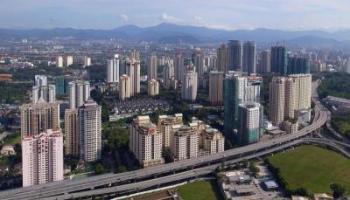Two boys were lost for hours – and were found in a lift after nine hours. Why did no one know? Or even bother about a stuck lift?
I WAS a rookie reporter when I was called to the now-condemned Pekeliling Flats in Kuala Lumpur – on the eve of Deepavali.
A man had been waiting for the lift. It was pitch dark as the lights were all out and the maintenance was very poor. He pressed the lift button and the door opened.
Assuming the lift was there, he stepped in. There was nothing but thin air. The man fell more than a dozen floors, and no one knew about it until a guard on the ground floor heard some moaning.
He checked. The man had survived the fall but he broke both his legs and many bones. If he had died, they may not have found him for days!
Immediately after the tragic accident, there was an outcry over how flats in our country needed proper upkeep and maintenance. And the leaders stepped in, promising changes. City Hall also promised improvements.
But then, there is this Malay saying: “Hangat-hangat tahi ayam.” Things soon cooled down and the matter was forgotten.
The Pekeliling Flats are gone now, and the area is about to be developed into a prime commercial centre. But one thing has not changed – our maintenance culture, or the lack of it.
On Monday, two boys aged 10 and 11 went missing. One of the boys, according to his aunt, had left his home at the Desa Petaling Flats at about 2pm to buy buns and meet his friend living at the nearby Pangsaria Apartments.
When they had not returned home at 10pm – eight hours later – the families got worried. Frantically, they put out alerts on social media. They also lodged police reports and a search was mounted. They searched, and so did the cops.
It was at 1am, some three hours later, that a security guard checked the CCTV and realised the boys had actually been trapped in a lift. They had been there for about nine hours and no one had known about it.
The boys said they had tried to call out, but no one replied or came to their rescue. It’s a good thing the boys were just exhausted, hungry and sleepy when they were finally rescued, with nothing more serious happening to them.
But what if something serious had happened? Who would take the blame?
What boggles the mind is: Why did no one know that the lift had been stuck for nine hours?
Did no one else need to use it for the full nine hours? Or have the residents got so used to the lift breaking down? This happens often in many flats, where “out of order” notices are hung outside lift doors.
After more than 40 years since that Pekeliling Flats incident, our maintenance culture still sucks.
In June this year, a video of a man carrying his wheelchairusing grandmother up the stairs at the flats where they live went viral. All four lifts in the flats in Setapak were out of order.
The man said he had complained to the apartment management and technician, but nothing was done. That is how bad things are.
Of course, in many cases, the residents themselves are to be blamed. They just do not care about the upkeep of the facilities they use.
The two boys, for instance, were no angels. But they exposed both problems – vandalism and apathy.
First, the two – for some unknown reason – stuck a slipper in the lift door, causing it to go into auto-lock mode. And then, while they cried for help, no one cared about a lift that was stuck for nine hours.
Like the boys, many residents in flats around the country find joy in vandalism, damaging the buttons, doors and electrical equipment.
There are 159 People’s Housing Programme (PPR) projects with 99,000 housing units nationwide. If each unit housed between four and five people, we are talking about close to 400,000 people who are using lifts every day.
In Kuala Lumpur and Selangor, there are said to be about 150,000 PPR residents. There are already many other social problems in these flats, including a lack of cleanliness, gangsterism and drug use.
They don’t need broken down lifts as well.
Residents in Kepong, for one, have long been complaining about faulty lifts at their PPR flats. They even resorted to writing to the King.
“We commonly hear about PPR lifts breaking down all around the country and in many cases, it is the lack of spare parts that causes downtime,” said an annoyed Kepong MP Lim Lip Eng.
“Why has the availability of spare parts to repair lifts not been made a priority?” he asked. Why indeed?
All local councils need to have spare parts parked somewhere central, along with technicians who can reach the flats quickly when called.
Then, there is cronyism in the choice of contractors, which leads to incompetent people getting the maintenance jobs.
In the case of the flats in Kepong, a contractor had failed to replace six of the lifts, say residents. Yet, the same contractor was re-appointed to replace 32 lifts across 12 blocks of flats there. Who made that call?
The Malaysian Elevators and Escalators Association (yes, there is such an organisation) agrees that the poor choice of contractors by management committees was the main reason for the problem. “They just want to save costs and do the minimum maintenance,” it says.
And why do they do that? Because there are residents who do not pay management fees, forcing the committees to cut corners. It is a vicious circle.
It is important that everyone plays their part. The government has set aside Rm100mil for flats maintenance, but that is simply too little. Preventive maintenance must come from the residents themselves.






















